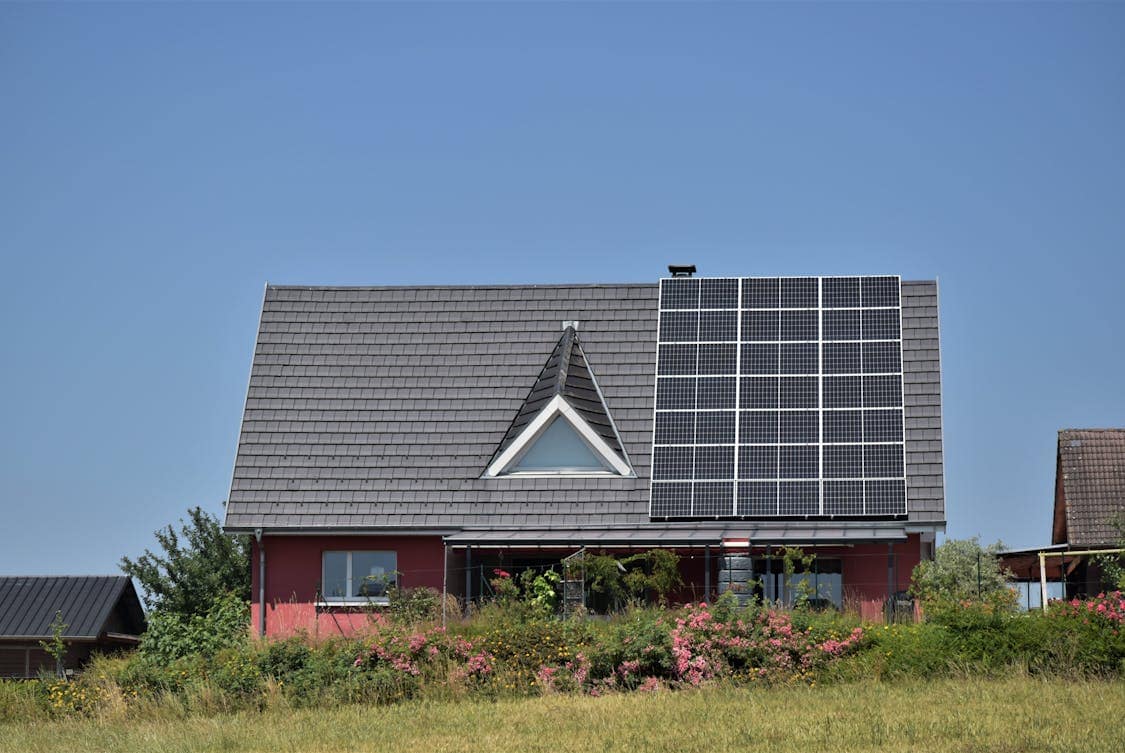The movement towards renewable energy is gaining traction, and solar panels are at the forefront of this vital transformation. As people embrace more sustainable practices, the advantages of solar energy become increasingly apparent.
Here’s a look at five significant benefits of installing solar panels today.
1. Significant Cost Savings
One of the most immediate perks of solar panel installation is the potential for substantial cost savings. Homeowners who switch to solar energy can drastically reduce their electricity bills.
Once the panels are in place, sunlight is essentially free. With energy costs rising, the ability to cut monthly expenses is an attractive proposition.
Many salt lake solar companies provide affordable installation packages that help homeowners reduce upfront costs and start saving sooner.
Furthermore, many regions offer incentives and rebates that can significantly offset the initial installation costs. Governments are eager to promote renewable energy, and financial assistance can make solar power even more budget-friendly.
For those seeking to stretch their budgets, these savings can’t be overlooked.
Long-term projections also show a return on investment that makes solar panels a smart financial choice. Homeowners can expect to see their investment pay off in a matter of years.
Unlike many home improvements that depreciate, solar panels often appreciate in value, adding to the overall worth of a property.
Finally, reducing reliance on grid electricity can provide peace of mind. In a world where energy prices can fluctuate drastically, having a stable source of power can shield homeowners from financial surprises.
2. Environmental Benefits
Solar energy is inherently cleaner than conventional energy sources. Traditional power generation often involves burning fossil fuels, which release harmful emissions.
By opting for solar panels, individuals actively contribute to reducing their carbon footprint. This small step can have significant effects on air quality and climate change.
Moreover, solar energy promotes energy independence. When communities harness their own power, they rely less on centralized energy sources that may exploit natural resources.
This shift fosters a healthier relationship between people and the environment, supporting sustainability.
The manufacturing of solar panels has also become more eco-friendly over the years. Innovations in technology mean that the materials used are increasingly recyclable, reducing waste.
Solar panels can generate clean energy without polluting the ecosystem, aligning with the global push for more responsible consumption.
Taking a stand for the environment can be empowering. Each solar installation represents a choice to support renewable resources, creating a ripple effect that encourages others to consider similar paths.
3. Increased Home Value

Investing in solar panels often translates to an increase in home value. Many homebuyers are actively seeking properties equipped with solar energy options, viewing them as a modern and sustainable choice.
Homes with solar installations can sell faster and at higher prices, making them a lucrative investment.
Real estate trends indicate that solar-equipped homes are gaining popularity. Buyers recognize the long-term savings on energy bills and appreciate the environmental responsibility that comes with such installations.
For sellers, this can mean a quicker sale and a desirable return on investment.
Moreover, many areas now have policies that safeguard solar installations, making it easier for future homeowners to retain the benefits of solar energy.
This adds an extra layer of appeal for potential buyers, as they can step into a home that promises energy savings from day one.
Lastly, the presence of solar panels can also serve as a marketing advantage for sellers. As sustainability becomes a priority for many, having an eco-friendly home can attract a specific segment of buyers ready to invest in such features.
4. Energy Independence
Solar panels provide a degree of energy independence that’s increasingly valuable in today’s world. By generating their own electricity, homeowners can lessen their reliance on the grid.
This autonomy can be particularly beneficial in areas prone to power outages or fluctuating energy prices.
The appeal of energy independence extends beyond individual households. Communities that invest in solar infrastructure can foster local resilience.
When neighborhoods come together to harness solar power, they create a sustainable energy ecosystem that can withstand external pressures.
Moreover, this independence empowers people to make choices about their energy consumption. Homeowners can utilize energy storage solutions, such as batteries, to ensure they have power even when the sun isn’t shining.
This control over energy resources can be quite liberating for many.
In a world where energy security is paramount, having the ability to produce one’s own electricity enhances personal and community stability. It’s a proactive step towards a more sustainable and self-sufficient future, benefiting not just individuals but society as a whole.
5. Job Creation and Economic Growth
The solar industry is a booming sector that has proven to be a significant contributor to job creation. As more people make the switch to solar, there’s a rising demand for skilled workers to install and maintain these systems.
This demand can stimulate local economies and provide stable employment opportunities.
Moreover, many solar companies are often local businesses. Supporting them by choosing solar panels can lead to a positive economic ripple effect within communities. As these businesses grow, they contribute to the local tax base and foster further job creation.
Investing in solar energy also encourages innovation. As technology evolves, new methods and materials emerge, leading to more efficient systems and even more job opportunities within research and development sectors.
This cycle of innovation keeps the industry dynamic and responsive to changing energy needs.
Finally, communities that adopt solar energy often find themselves more resilient in the face of economic shifts. With an emphasis on renewable energy, areas can draw investments from both public and private sectors, leading to sustainable economic growth that benefits everyone involved.
By embracing solar panels today, individuals not only improve their living conditions but also contribute to a broader movement towards sustainability and economic stability.
The advantages are not merely financial or environmental; they encapsulate a vision for the future that aligns community interests with personal choice.